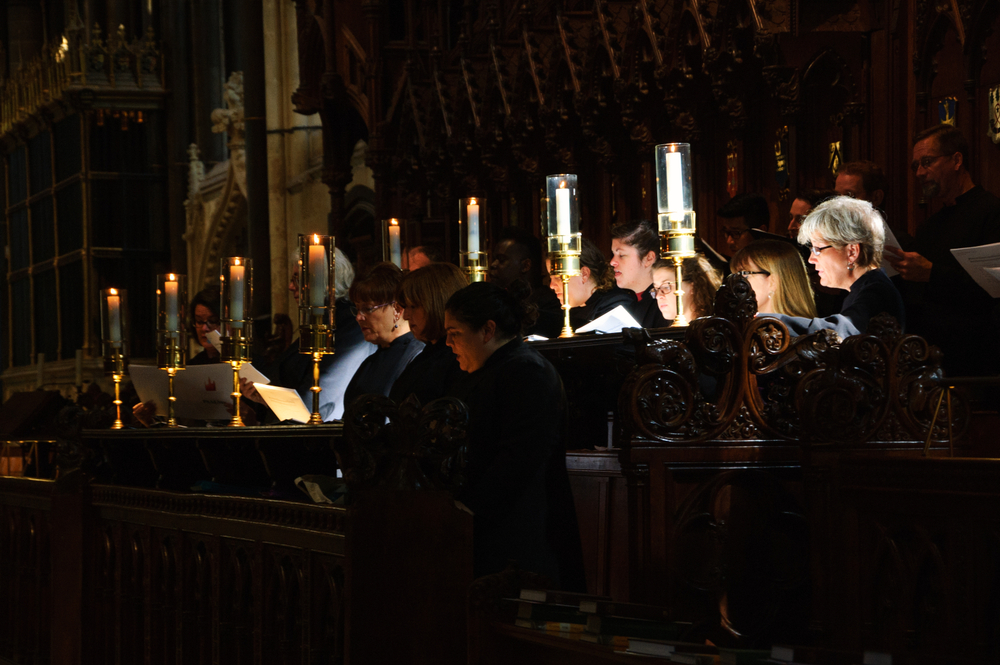“The church earnestly desires that all the faithful be led to that full, conscious and active participation in liturgical celebrations called for by the very nature of the liturgy. Such participation by the Christian people as ‘a chosen race, a royal priesthood, a holy nation, God’s own people’ is their right and duty by reason of their baptism.” Constitution on the Sacred Liturgy (CSL), No. 14
“Yet for Catholics with disabilities, participation in the liturgical and sacramental life of the Church — a ‘right and duty by reason of their baptism’ — is often made more difficult not by overt discrimination but by lack of understanding and empathy. The community often denies itself the God-given gifts and desires of those with disabilities simply because they have never thought to work with people with disabilities to review what barriers are present to keep all participating fully, consciously and actively in the Church’s prayer and ministry.” “Guiding Principles and Strategies for Inclusion in the Liturgy of Catholics with Disabilities, Federation of Diocesan Liturgical Commissions (FDLC.org), Liturgical Arts and Music Committee, 2005
Liturgy well celebrated nudges us all to become a people formed in the vision of the Gospel, a vision that agitates us to seek and find the sacred presence of God in all humanity.
Our liturgies carry a vision that we live Heaven here on earth, that we celebrate the Mass as we would in the kingdom of God where we all gather around the table of the Lord, equal in God’s eyes. We are sent forth from Mass to live that communion in our everyday lives.
We all came from the creative hand of God, so each of us holds a piece of the divine within us. “The kingdom of God is within you” (Luke 17:21).
We are part of a fullness that is the kingdom. To live the fullness of this inclusion, we need the ‘God-given gifts and desires’ of everyone, including those of persons with disabilities. We are each incomplete in some way until we find one another together in the fullness of the divine presence.
“The liturgy is the source for achieving in the most effective way possible human sanctification and God’s glorification” (CSL No. 10).
If any of our members are discouraged from participation in Mass because of any form of human difficulty, discouragement or discrimination, we must widen our circle, change our behavior, increase our awareness, extend our boundaries, do whatever it takes to include all members in full participation. To continue to grow in the holiness of God we must break down any barriers, whether physical, emotional or psychological.
The Office for Worship would like to challenge and assist all of our archdiocesan parishes in a renewed effort to reach out and work with persons with disabilities, to help them find their place within the liturgical life of the parish. Liturgy well celebrated reveals God’s life to us, and that life is incomplete if we have not included those, who for too long have been marginalized by disability, circumstance, illness or anguish.
The U.S. Catholic Bishops in their document called “Sing to the Lord: Music in Divine Worship” remind us that “faith grows when it is well expressed in celebration. Good celebrations can foster and nourish faith. Poor celebrations may weaken it” (No. 5).
In the light of this shared wisdom, we need to ask ourselves: Are our parish celebrations of the Mass growing the faith of our community, or are they static, unmoving, simply maintaining it? Do our celebrations of the Mass reflect a heavenly kingdom where all humanity is one communion in Christ? How can we reach out and draw closer those on the margins of our parish life?
The first step to expanding the horizons of inclusion in a parish is to appoint a team of parish advocates who can contact and conduct interviews with community members with disabilities, finding out their needs and desires for liturgical participation, and further involvement in the liturgical ministries.
Consider including persons with disabilities who are baptized Catholics (and for some ministries, also confirmed) in the following liturgical ministries, for which the Office for Worship is happy to provide special training and formation, adjusted to their needs:
- rn
- Ushers or greeters in the Ministry of Hospitality
- Extraordinary Ministers of Holy Communion
- Lector Ministry
- Music Ministry
- Writers and readers of the Universal Prayers
rn
rn
rn
rn
rn
rn
The presence in our liturgies of persons who are differently abled by mental, emotional or physical disability offers us an opportunity of fuller communion in God. Their full, conscious and active participation enlarges our understanding of the mystery of God and the truth of the Gospel. This glimpse of heaven forms us as one body in God’s love.

